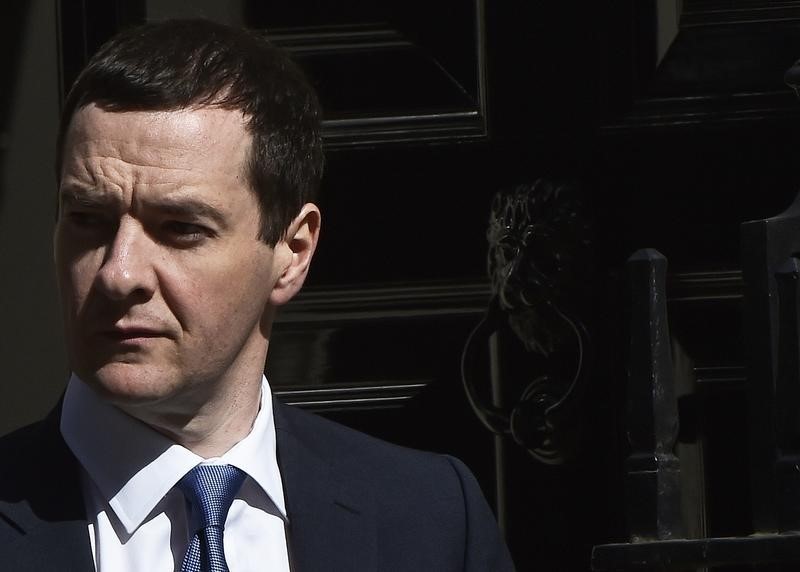LONDON, July 21 (Reuters) - British government borrowing in June fell by less than expected but was its lowest for that month in seven years, the latest sign that the turnaround in the country's economy is helping the public finances.
Britain's headline public borrowing fell to 9.4 billion pounds in June from 10.2 billion pounds a year earlier, compared with economists' forecasts of an 8.5 billion pound deficit, the Office for National Statistics said on Tuesday.
For the first three months of the 2015/16 tax year, public sector net borrowing was 25.1 billion pounds, down nearly 20 percent compared with the April-June period of last year and its lowest for the same period since the 2008/09 financial year.
The ONS said that income tax receipts in June rose by 0.3 billion pounds to 11.5 billion pounds, the highest level since records began in 1997.
Corporation tax was up nearly 14 percent at 1.7 billion pounds, also the highest amount on record.
British chancellor George Osborne said earlier this month that he was aiming to bring down the budget deficit in the current financial year to 69.5 billion pounds, or 3.7 percent of economic output, lower than his previous target.
In the 2014/15 financial year, the deficit stood at 4.9 percent of gross domestic product, half its level in 2010 when Osborne's Conservative Party first took power but still bigger than the hole in the finances of most other advanced economies.
Osborne also used his post-election budget to set himself less challenging targets for the three years after the current financial year and he pushed back the date when Britain is scheduled to wipe out the deficit altogether until 2019/20.
Public sector net debt, excluding state-controlled banks, totalled 1.513 trillion pounds in June equivalent to 81.5 percent of GDP, the second highest ratio on record.
The figure included the addition of 100 million pounds in debt relating to a revision of debt levels at Network Rail, a railway company.
Osborne is aiming to start bringing the ratio down in the 2015/16 financial year after it rose sharply following the financial crisis.
